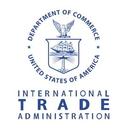The USGC recently sponsored South Korea SAF experts to tour the U.S. alcohol-to-jet Fuel (ATJ) technology supply chain. Participants met with stakeholders ranging from low-CI corn farmers to ATJ SAF production technology companies and airlines.
President Donald Trump on July 22 announced new trade framework agreements with Indonesia and Japan. Both agreements are expected to benefit the U.S. agriculture industry, including farmers and ethanol producers.
The U.K. Department for Transport on July 22 awarded £63 million ($82.22 million) to 17 sustainable aviation fuel (SAF) companies through the governments’ Advanced Fuels Fund. The funding is expected to support approximately 1,400 jobs.
CARB on June 27 announced amendments to the state’s LCFS regulations will take effect beginning on July 1. The amended regulations were approved by the agency in November 2024, but implementation was delayed due to regulatory clarity issues.
Legislation introduced in the California Senate on June 23 aims to cap the price of Low Carbon Fuel Standard credits as part of a larger effort to overhaul the state’s fuel regulations and mitigate rising gas prices.
In May, U.S. Grains Council Chairwoman Verity Ulibarri and USGC President and CEO Ryan LeGrand traveled to Beijing and Hong Kong, China to meet with key industry counterparts and join the USDA’s Agribusiness Trade Mission.
The U.S. EIA reduced its 2025 and 2026 production forecasts for a category of biofuels that includes SAF in its latest Short-Term Energy Outlook, released June 10. The forecast for 2025 renewable diesel production was also revised down.
The U.S. Energy Information Administration maintained its 2025 and 2026 forecasts for renewable diesel and “other biofuel” production, which includes SAF, in its latest Short Term Energy Outlook, released May 6.
Ethanol Producer Magazine has announced the keynote speakers for the 2025 International Fuel Ethanol Workshop & Expo (FEW) being held June 9-11, 2025, at the CHI Health Center in Omaha, Nebraska. The general session will take place June 10.
CoBank latest quarterly research report highlights current challenges facing the biobased diesel industry. The report cites policy uncertainty and trade disruptions due to tariff disputes as factors impacting biofuel producers.
The USGC’s office in Beijing in March organized a set of meetings aimed at assessing demand for SAF. USGC Director in China Manuel Sanchez led the team that included USGC Program Manager Ellie Yan and USGC Regional Ethanol Consultant Aaron Goh.
The U.S. Department of Commerce has disbanded an advisory committee that provided the agency with private sector advice aimed at boosting the competitiveness of U.S. renewable energy and energy efficiency exports, including ethanol and wood pellets.
As the Philippines moves toward unlocking the potential of SAF, the USGC collaborated with the Philippines Department of Transportation and Boeing to conduct the first Philippines SAF Summit in Manila.
The Minnesota Senate Taxes Committee on March 3 voted to approved legislation that aims to extend and expand the state’s existing tax credit for sustainable aviation fuel (SAF), which was established in 2023.
The U.K. government on March 3 opened a public consultation on a SAF revenue certainty scheme, which aims to reduce financial risks for emerging SAF producers. The scheme complements the U.K.’s SAF mandate, which came into force Jan. 1, 2025.
CARB on Feb. 18 announced that amendments to its LCFS program that were approved in November 2024 have been put on hold following the California Office of Administrative Law’s decision to disapprove the amendments due to clarity issues.
The U.S. Department of Commerce’s International Trade Administration on Feb. 12 announced it would postpone a meeting of the Renewable Energy and Energy Efficiency Advisory Committee that was scheduled to take place that day.
The U.S. Department of Commerce’s International Trade Administration has announced the Renewable Energy and Energy Advisory Committee will hold a meeting Feb. 12 in Washington, D.C. The event will also be streamed online.
The U.K.’s sustainable aviation fuel (SAF) mandate officially came into force on Jan. 1. By law, SAF must now account for at least 2% of all jet fuel in flights taking off from the U.K. The mandate is set to expand to 10% in 2030 and 22% in 2040.
CoBank predicts that U.S. production of renewable diesel and associated fuels will experience a modest boost in 2025 but cautions that policy uncertainty looms over administration of the RFS program, SREs and the impact of potential tariffs.
California Senate Minority Leader Brian Jones, R-San Deigo, on Dec. 2 introduced a bill that aims to repeal the Low Carbon Fuel Standard regulations approved by the California Air Resources Board on Nov. 8.
The U.K.’s sustainable aviation fuel (SAF) mandate was signed into law on Nov. 18 and is set to come into force on Jan. 1, 2025. The government has also launched a new Jet Zero Taskforce to revamp efforts to make greener air travel a reality.
CARB on Nov. 8 approved updates to its LCFS that aim to reduce the CI of the state’s transportation fuel by 30% by 2030. The updates also alter how a variety of biofuels, including biobased diesel and RNG, participate in the program.
USGC staff traveled to Tokyo, Japan in October to participate in the 2024 Sustainable Aviation Fuel (SAF) and Bioethanol Summit, where industry leaders, educators and policymakers gathered to discuss the future of biofuel use.
The USGC recently released a set of infographics designed to share the environmental and financial benefits of ethanol, the carbon reduction assessment models for SAF and a map displaying ethanol blending policies around the world.
Legislation introduced in the California State Assembly on Sept. 11 aims to prevent the California Air Resources Board from amending the state’s Low Carbon Fuel Standard regulations prior to Jan. 1, 2026.
Thailand’s newly proposed National Energy Plan is expected to set a target for sustainable aviation fuel (SAF) starting in 2026, according to a report filed with the USDA. The plan also includes targets for ethanol and biodiesel.
The U.K. Department for Transport on July 22 sent a written statement to the U.K. Parliament confirming that, subject to Parliamentary approval, the agency will introduce a sustainable aviation fuel (SAF) mandate starting on Jan. 1, 2025.
American Airlines consumed 2.7 million gallons of SAF in 2023, according to its 2023 Sustainability Report. While that volume of SAF use was up 4% when compared to 2022, it accounted for less than 1% of total fuel use during the year.
USGC staff and representatives traveled to Vancouver, Canada, in June to join Advanced Biofuels Canada in hosting a sustainable aviation fuel (SAF) policy roundtable on the sidelines of a USDA agribusiness trade mission.
Advertisement

























